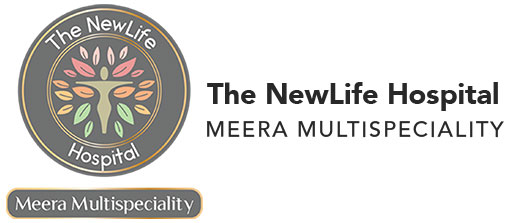
- What is a thyroid?
The thyroid gland is a small part or organ that is located in front of the neck. It is wrapped around the trachea. The shape is similar to a butterfly; it is smaller in the middle area and has wide wings that reach the side of the throat. The thyroid gland produces hormones that help in controlling a few vital functions of the body. Ineffective working of the thyroid gland can have an impact on the entire body.
Too much production of thyroid hormone can lead to the development of a health condition known as hyperthyroidism. If there is less production of thyroid hormone, it is known as hypothyroidism. Both the conditions are severe and need to be treated by doctors.
- What does the thyroid do?
The thyroid has an important role in the body that is released and controlled by thyroid hormone. These hormones are responsible for control over metabolism.
Metabolism is the procedure that takes in food and uses it in the form of energy. This energy is vital because your system and organs run depending upon it.
Thyroids control the metabolism with the help of different hormones such as T4 thyroxine and T3 triiodothyronine. They are responsible for understanding the amount of energy required in an individual’s body.
These hormones help to maintain that exact amount. The pituitary gland helps the thyroid in this procedure by adjusting the amount of its hormone and controlling the amount of thyroid hormone in the bloodstream. It is also referred to as the thyroid-stimulating hormone.
- Who is affected by thyroid disease?
Thyroid disease can occur in anyone’s body- men, women, teenagers, infants, and elders. It can also be diagnosed at the time of birth which is hypothyroidism and it can also develop after Menopause in women.
The thyroid is very common and affects around 42 million people in India alone. Women have higher chances of getting diagnosed as compared to men. You are exposed to a higher risk of the diagnosis if-
- there is a family history and many generations have had thyroid due to heredity,
- consumption of medicines that are high in Iodine,
- women older than 60
- pre-existing medical conditions such as Type 1 Diabetes, lupus, primary adrenal insufficiency, Sjögren’s syndrome, Turner syndrome, Pernicious anemia, and rheumatoid arthritis
- have had prior treatment due to any other conditions such as thyroid or cancer which include procedures of thyroidectomy or radiation.
- What causes thyroid disease?
The thyroid can be caused by various reasons:
- Cancer tumors
- iodine deficiency
- Genetic disorders
- Medical treatments like radiations, and some medicine
- Any bacterial inflammation
- Certain diseases like grave diseases, hashimoto’s disease and many more
- What are thyroid gland symptoms?

Hyperthyroidism symptoms of the thyroid include-
- anxiety
- nervousness
- weight loss
- Insomnia
- irritation
- enlarged thyroid gland
- sensitivity to heat
- problems in vision
- eye irritation
- irregularity in menstrual cycle or stoppage
- weakness in muscles
- tremors
Hypothyroidism symptoms include
- weight gain
- forgetfulness tiredness
- hoarse voice
- intolerance towards cold temperatures
- fatigue
- dry and coarse hair
- heavy and frequent menstrual cycles
- How is thyroid disease treated?

The main purpose of treatment is to return the hormone levels to normal and this can be done by adopting a variety of approaches. They vary depending upon the cause and severity of each case.
Thyroid treatment in case of hyperthyroidism with the levels of the hormones are high involved-
- Surgery
This is a more permanent approach where doctors remove your thyroid. This will prevent the creation of excess hormones and instead you will be taking other thyroid replacement hormones for normal functioning.
- Radioactive Iodine
This treatment works towards damaging your thyroid and preventing it from further production of high levels of thyroid hormones.
- Beta-blockers
These are medications that do not alter the amount of production but work towards controlling the symptoms.
Thyroid hormone imbalance treatment for hypothyroidism includes-
- medication for replacement
This is usually the only way to do so and involves the intake of drugs that act as an alternative to adding thyroid hormones back into your body; the most commonly used one is called levothyroxine.
The New Life Hospital Meera Multispeciality is a continuation of The Legacy of doctor A V Umranikar at Meera Hospital and is located in Pune. This hospital is known for its Medical Services and has been trusted by many clients for a long time. Their team includes expert doctors and nurses who have had experience in the field of medicine and surgery and will guide and assist you towards recovery.
